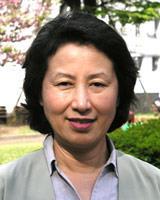Japanese research cash on hold after financial investigation
Japan’s ministry of education is reviewing its research funding policy following the discovery that a leading chemistry professor misused government funds.
Kazuko Matsumoto, an inorganic chemist at Waseda University, Tokyo, is accused of mishandling ?14.7 million (?68000) in funds between 2001 and 2003. Matsumoto has told Chemistry World that her only fault was to use research funding to cover students’ expenses, a position she was forced into by an impractical funding system.

But this justification has been rejected by her university, the Chemical Society of Japan, and the government ministry responsible for science.
Matsumoto has already resigned as vice-president and president-elect of the International Union of Pure and Applied Chemistry (Iupac), after being instructed to do so by the Chemical Society of Japan (CSJ). She was due to become the first ever female president of Iupac in 2008, and would have been only the second Japanese president.
A senior official at the CSJ explained how Matsumoto had ’borrowed’ students’ names to set up bank accounts where government funding was deposited. About ?9 million was then taken out of the accounts and put into an investment trust. Investing government research funds in this way is illegal.
’[Matsumoto] falsely claimed for wages for part-time workers including students who she supervised,’ confirmed Yasushi Mitsukuri of the Japanese government’s ministry of education, culture, sports, science and technology (Mext).
Mitsukuri, chief analyst in the science and technology policy bureau, told Chemistry World the case will have far reaching effects. ’As Prof. Matsumoto was an influential scientist, this case has significant impact on the Japanese research funding system,’ he said, particularly on the way the system is managed. It is also ’highly possible’ that Matsumoto misappropriated ?24.8 million through dealings with a private firm from 2002-2004, he said.
Funding on hold
As a result of these findings, the Japanese government delayed the distribution of ?10.6 billion (?50 million) in research grants scheduled to be awarded in July. It was reviewing its funding policy as this issue went to press, having asked research institutions for more details about how they planned to use the money.
Matsumoto argues that this funding policy was the root of her troubles, forcing her to move money between accounts so that she could cover students’ expenses. ’There are certain things that are necessary for student activities, but you cannot directly provide them with your government funds,’ Matsumoto told Chemistry World. ’It’s not only me: several other [researchers] do something similar.’
But the British Council’s science and education manager in Tokyo, Huw Oliphant, questions Matsumoto’s defence. ’Using government funding to cover students’ expenses in the research project is possible,’ he said.
Matsumoto has also resigned from advisory positions outside the university, including membership of the advisory councils of Kyoto University and Tokyo Technical University, and advisor to the Japanese government’s council for science and technology policy.
But Chemistry World has learned that Matsumoto’s offer to resign from Waseda University, made on 27 June, has not been accepted because her employers are considering a formal disciplinary dismissal. A university investigative committee is continuing to investigate other alleged financial irregularities, along with claims that she falsified data in students’ theses, an issue the committee says will take much longer to settle. The accusations come from many sources, including former students, said Sasaki Hiroyasu at the university’s public relations office.
The news came as a shock to Iupac member Lars Elding, professor emeritus of inorganic chemistry at Lund University, Sweden, who said ’her science was excellent.’ Other researchers based in Europe and the US who had worked with Matsumoto were surprised and upset by the news when contacted by Chemistry World.
Iupac’s new president and vice-president will now be selected at a meeting of the union’s council in Turin in August 2007, said executive director John Jost.
Bea Perks






No comments yet